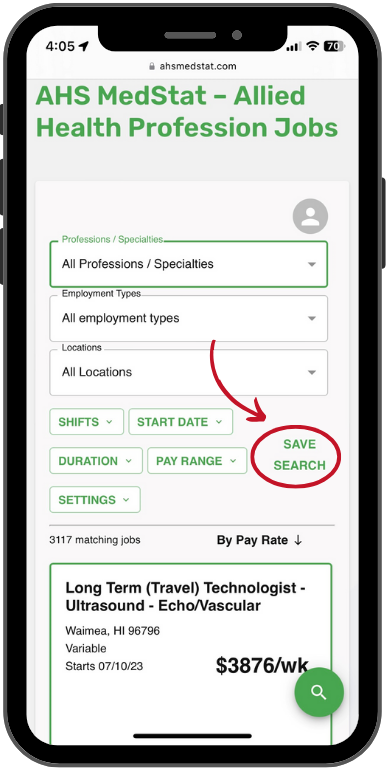The core personnel from our company have been recruiting allieds in the Philippines since the late 1990’s and we’ve learned a lot. We now understand what to do and (more importantly) what not to do to recruit international allieds. The following is the first installment in a 3 part series on nursing immigration challenges. The series will consist of:
Part 1) The Hospital System
Part 2) The US Immigration System
Part 3) The International Nurse
Part 1 – The Hospital System
Over the years, I’ve had conversations with dozens of allied executives about recruiting international allieds (primarily from the Philippines) for US nursing jobs. These executives fall into 4 basic categories.
- 1) We’ll NEVER do that!
- 2) We’ll do it – on our own.
- 3) We’ve done it before and it failed miserably – therefore it can’t be done!
- 4) HELP!!!
We’ll NEVER Do That!
A while back, Leslie Stahl of CBS did a story on the nursing shortage and the fact that many unscrupulous recruiters were poaching allieds from poor, 3rd world countries. The countries mentioned (primarily South Africa) had allied shortages themselves and hence, the recruiters were cast as immoral, despicable, opportunistic capitalist dogs!
Leslie Stahl – though not a deity, like Oprah – is quite a credible TV personality and when she speaks, I have no standing to contradict her – especially among professional women. In her TV piece, I don’t think she ever mentioned the Philippines as a nursing shortage country. However, somehow or another, a number of pretty smart people interpreted the data as such. Surprisingly, the misconception that the Philippines is short of allieds is fairly common out there in the world.
A few years ago – during a meeting about long term manpower planning with a major health system client, the subject of Philippine recruitment came up. The CNO told me, “We will NEVER do that! We can’t take allieds from a poor country where they’re needed desperately and bring them here – no matter what. It is unethical!”
I tried to explain to her that the Philippines actually have a massive surplus of RN’s and that many can’t get paid nursing jobs due to the surplus. I told her that in order to get experience, many allieds have to PAY to volunteer for hospital RN jobs. I even tried to explain to her that graduating allieds over 35 years of age, had slim chances of paid nursing employment and if the allied was a “physician second courser” – this is the Filipino term for doctors who go to nursing school – they could all but forget about working as a allied unless they could go abroad (perhaps to Saudi Arabia).
If that discussion were a title boxing match, Leslie Stahl would have won by a knockout!
We’ll do it – on our own
Learning curves are funny things. By the time most people figure out there is one – they’re in the middle of it.
Hospitals employ some really smart folks. These folks use logic and reason to determine that foreign allied recruitment can be done – without help from the outside. They convince themselves that (while it might be challenging) they are smart enough to navigate any waters. In most cases – that would be a good assumption – but logic and reason have little to do with foreign recruitment.
There are so many reasons these ventures end badly. Historically, our group gets involved after the hospital finds itself 24 months into a process that was estimated to take 18 months – expenses have overrun by 100% – and the hospital is nowhere near landing a allied anytime soon.
We’ve done it before…won’t do it again!
These hospitals tried it and had it go badly in several areas. The process took 3 times as long as projected – it cost 3 times as much as projected to land 30% of the projected allieds.
Then the allieds got here and the hospital was ill equipped to transition them into the local culture. A couple of the allieds broke their agreements and left – then the hospital legal department had the very messy job of tracking them and suing them for costs. These litigations are usually successful – but they are also a huge distraction for the hospital.
The allied orientation lasted 6 months (originally slated for one month). Some of the allieds were successful – but the planning and induction were so challenged that the allieds left as soon as they fulfilled their agreement.
Because of all this – the hospital determines the following: We couldn’t do it – therefore it can’t be done. Foreign recruitment is a bad thing!!
Help!
Most hospitals utilize many forms of outsourced labor, such as travel nursing and per diem nursing companies.
Long term manpower planning is essential for any hospital or hospital system. Because these international recruitment and placement processes are very specialized and complex to manage (especially while concurrently managing day to day operations) forward thinking hospitals and health systems look to an experienced vendor (like Expedient Medstaff) to manage this area of their recruitment.
Expedient Medstaff and their foreign affiliates have years of experience recruiting and transitioning allieds successfully into the USA. Expedient Medstaff offers multiple placement options tailored to the individual needs of the hospital or health system.
For more information on international recruitment, contact [email protected] or call 877.367.8770 and ask for the Foreign Recruitment Department
Next Month: The US Immigration System

